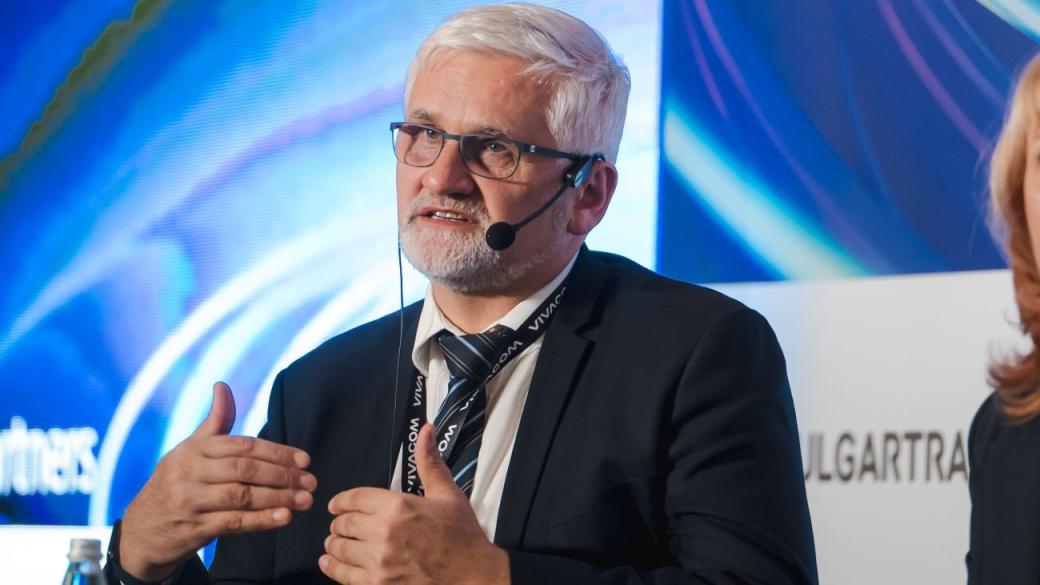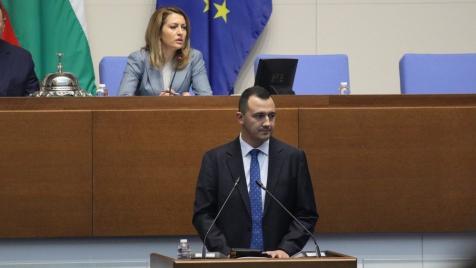The decarbonization of Europe must go hand in hand with competitiveness
The first step is to ensure affordable clean energy for Europe, Dusik said at the iN Sofia forum
Jan Dusik, Deputy Director-General of DG Climate Action at the European Commission:

Europe cannot view decarbonization in isolation, but must take a sensible approach. This process must go hand in hand with competitiveness. This was stated by Jan Dusik, Deputy Director-General of the European Commission's Directorate-General for Climate Action (DG CLIMA), during the international forum iN Sofia 2025, organized by Economic.bg.
This is already laid down in the Clean Industrial Deal. We are currently implementing a program that covers a number of areas and strategies," Dusik said.
He explained that the first direction is to ensure affordable clean energy for Europe. According to him, the continent must secure sufficient clean energy to enable citizens and businesses to continue with decarbonization, which is not only a matter of economics but also of security and sustainability.
We know that energy is the lifeblood of the economy," he added.
In his words, a possible solution is for Europe to become better at producing its own energy and to diversify its imports of raw materials.
Climate change is already happening, companies must prepare to operate in a world that will be at least 1.5°C hotter," he said.
In the case of Europe, this will mean temperatures 3°C higher.
Source of funding
However, in order for the Old Continent to face the new reality, funding is needed, and according to Dusik, the European Emissions Trading System (ETS) provides just that.
It is a huge source of revenue. The system finances the Modernisation and Innovation Fund," Dusik added.
Separately, the new EU budget proposed by the EC for the next seven years allocates 35% of its funds to climate and environmental investments.
The focus of the Clean Industrial Deal
Dusik also touched on the topic of the Clean Industrial Deal, mentioning that it focuses on two main sectors:
- Energy-intensive industry;
- The sustainable technologies sector.
One area is energy-intensive industries and the question of how we can help them adapt and decarbonize – to switch to electrification where possible, to find new energy sources such as green hydrogen, to develop solutions for carbon capture, storage, and utilization, as well as for the application of renewable energies and carbon removal technologies," he said.
As for the sustainable technologies sector, the Deputy Director-General saw "great potential and many opportunities" in Bulgaria. He shared his conversation with Bulgarian industry, which discussed opportunities related to the circular economy, higher efficiency, and better cooperation across value chains.
According to Dusik, the Green Deal is already yielding results, with 20 years of experience with the European Emissions Trading System having reduced carbon emissions in the affected sectors by 50%, while the economy has continued to grow.
We can see that decoupling economic growth from carbon emissions is working. The system is being expanded – it will soon cover households and the transport sector, and already covers around 70% of the European economy. It is actually reducing emissions and gives us confidence that we will achieve the target of a 55% reduction by 2030 and climate neutrality by 2050. We are currently discussing the target for 2040," he summarized.
Translated with DeepL.

 Simona Gotsova
Simona Gotsova 



